Hyzon, a US-based startup with executives from Australia, drove its first Australian-built hydrogen fuel cell electric truck out of its Noble Park headquarters in Melbourne’s south-east on Monday, March 6.
The company has been active in Australia for a few years now and is beginning to deliver on its pre-orders, including with RACV’s towing subsidiary, Nationwide. Speaking at the launch, RACV CEO Neil Taylor noted that Nationwide owns 1,000 towing trucks – three of which are now powered by hydrogen, with the commercial trials potentially promising a new zero-emissions future for the fleet.
“We’re making it very clear that we’ve got a product now, the first product that’s been designed locally, that’s ready to go into market,” John Edgley, Hyzon’s Melbourne-based international president, told The Age newspaper. “That will give more confidence that actually we can start transitioning these big fleets in companies that have thousands and thousands of these trucks.”
Hyzon also has orders in from Coregas in New South Wales, Ark Energy in Queensland, and garbage truck company Superior Pak, part of an agreement which sprouted from a hydrogen innovation hub in Bundaberg.
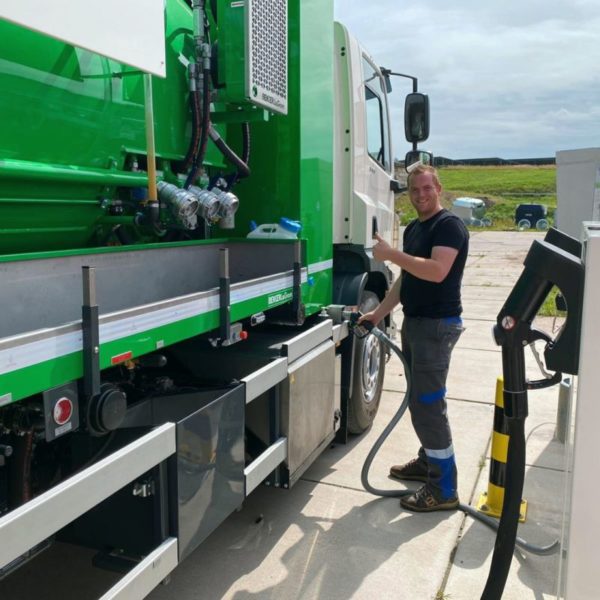
Image: Hyzon
Hyzon’s Noble Park manufacturing facility
As part of its partnership with RACV, Hyzon is turning its Australian Noble Park headquarters into purpose-built facility to include corporate offices, a showroom, assembly warehousing and workshops. The company is now preparing to break ground on the 10,000-square-metre manufacturing facility, with the early stages of construction having begun.
Hyzon says the facility is expected to generate over a 100 localised engineering and manufacturing jobs by 2025, with “hundreds more indirect jobs expected through the supply chain.”
Hyzon is headquartered in Rochester, New York, but its former CEO and co-founder Craig Knight is Australian, which has presumably led the company to pay attention to Australia’s often overlooked hydrogen fuel cell electric vehicle (FCEV) market. The company established its Australian outpost in 2020, and, according to The Age, has now grown its teams to just over 50 engineers, fabricators, welders and designers.
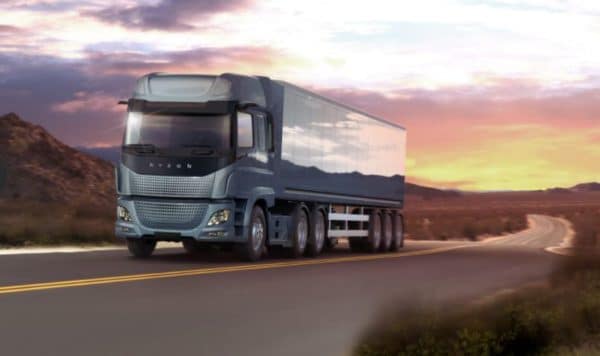
Image: Hyzon
The startup was born from Singapore-based company Horizon Fuel Cell Technologies, founded in 2003 and specialising in hydrogen fuel cells.
Coming back to the company’s new Melbourne base, Hyzon’s team have designed and built their first three trucks over the past year, replacing diesel engines in new Mercedes trucks with hydrogen fuel cells and tanks. The trucks were tested at Holden’s former proving ground in Lang Lang, southeast Melbourne, over summer.
Lead engineer Chris Heraud told The Age the vehicles were designed to be something of a Swiss Army knife of trucks in that they are able to be adapted to fit various applications, from towing to garbage collection.
Hydrogen trucks
The use of hydrogen in vehicles has been a hotly debated in Australia, but found a foothold in the heavy vehicle and trucking sector. This is because unlike electric vehicles, which well and truly hold marketshare when it comes to passenger cars, the batteries needed for big trucks are extremely heavy and require downtime to charge.
This heavy-transport sector has been the sole focus of Hyzon, which has established itself in the US, Europe and Asia. While its trucks are quick to refuel, they cost about three times more than diesel alternatives.
Other countries like Germany, where vehicle manufacturing is central to the economy, are heavily subsiding zero-emissions trucks, but Australia has yet to introduce such measures.
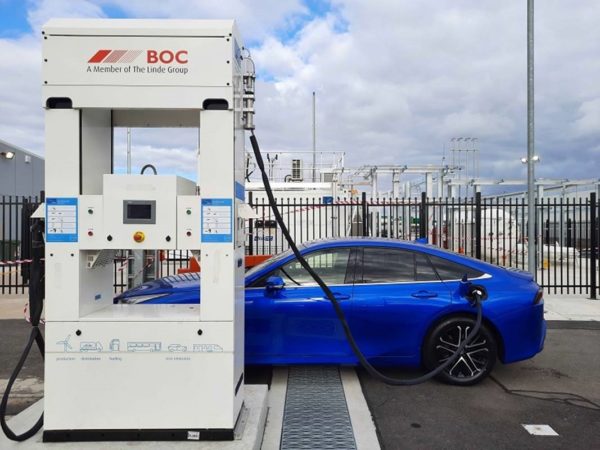
BOC
Moreover, the cost of hydrogen – mostly importantly green hydrogen – needs to come down in price and up in commercially available for such technology to be a viable alternative to diesel. There has been no shortage of hydrogen production projects and refuelling station plans across Australia though, with some already coming online and many more in the pipeline.
Hyzon and RACV have said they plan to develop their own solar-powered green hydrogen refuelling station at Noble Park to cater to their fleet.
Electric post trucks on trial
Australia Post has also launched a six-month zero-emissions truck trial, though it is using a fully electric truck from Volvo, the FL Electric. A smaller version of the truck has been trialled on Australian roads since 2021, with Volvo saying it has recently been given the green light to begin local validation of heavy-duty electric trucks on Queensland roads at weights of up to 42.5 tonne.
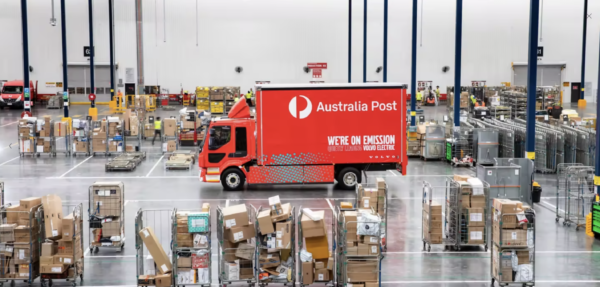
“The truck has been in service for a couple of months now and is performing well,” Australia Post Divisional General Manager South, James Dixon, said. “In this case the FL Electric is an excellent fit for Australia Post.”
“We will continue to push electric vehicles into our fleet where we can to help reduce emissions wherever we can.”
Australia Post has been using electric vehicles for coming on four years now, though the vast majority deployed to date have been three-wheeled electric delivery vehicles and electric bikes.
The Volvo FL Electric is based at Australia Post’s Redbank Plains Distribution Centre on the outskirts of Brisbane.
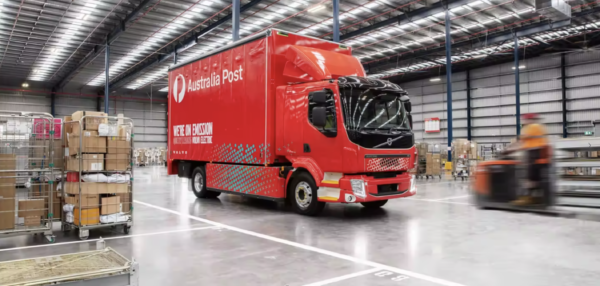
This content is protected by copyright and may not be reused. If you want to cooperate with us and would like to reuse some of our content, please contact: editors@pv-magazine.com.
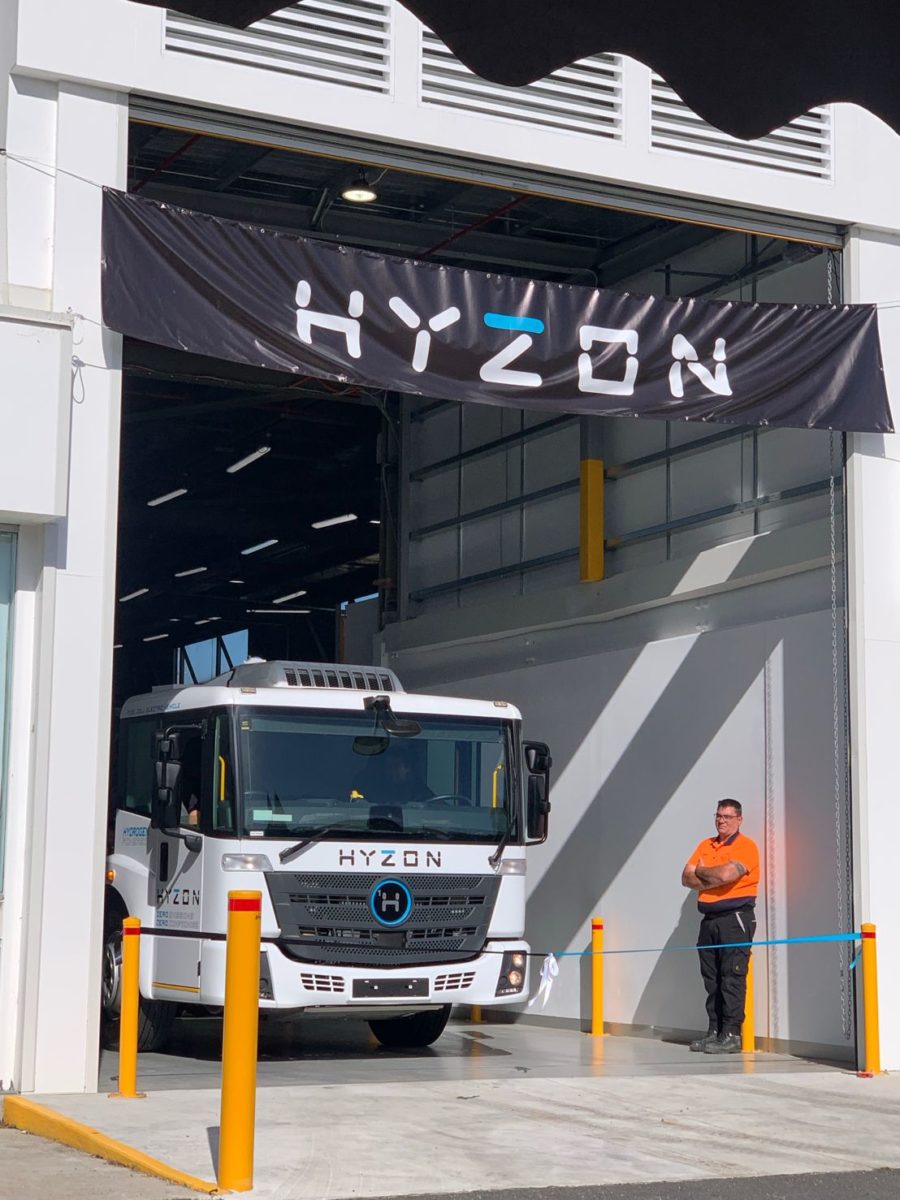
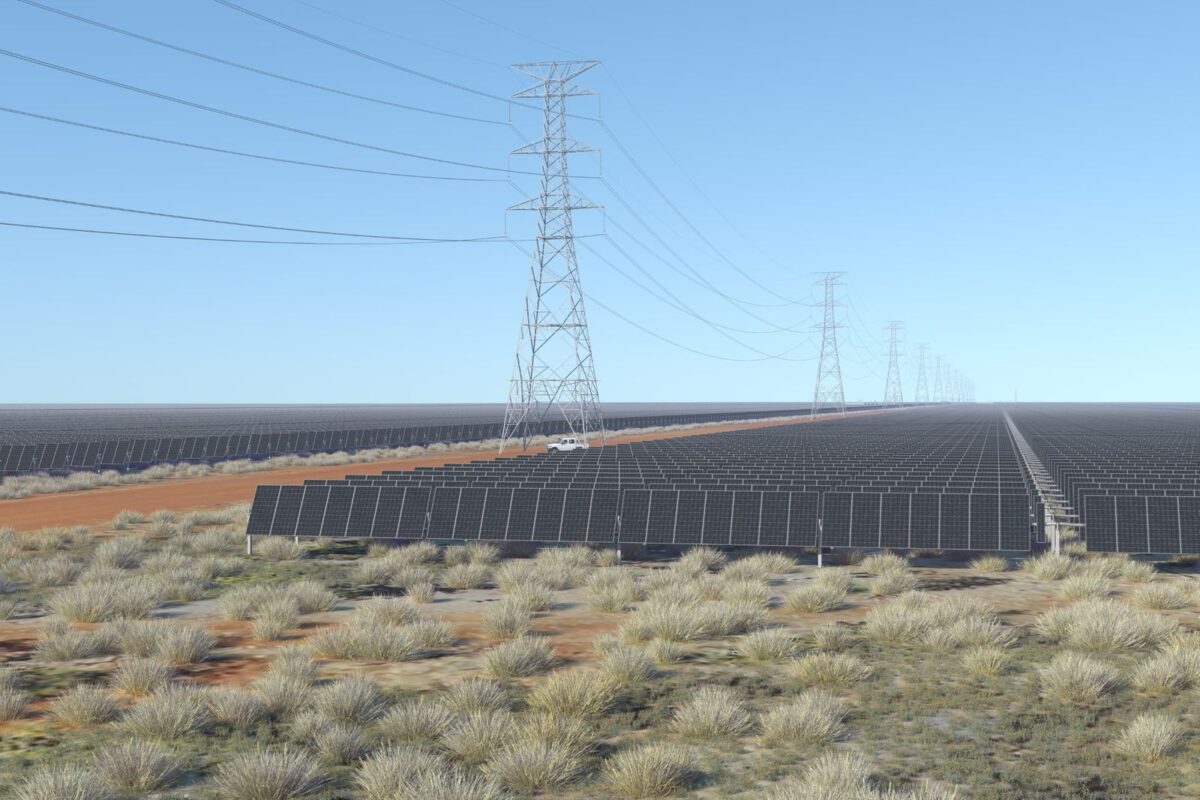







1 comment
By submitting this form you agree to pv magazine using your data for the purposes of publishing your comment.
Your personal data will only be disclosed or otherwise transmitted to third parties for the purposes of spam filtering or if this is necessary for technical maintenance of the website. Any other transfer to third parties will not take place unless this is justified on the basis of applicable data protection regulations or if pv magazine is legally obliged to do so.
You may revoke this consent at any time with effect for the future, in which case your personal data will be deleted immediately. Otherwise, your data will be deleted if pv magazine has processed your request or the purpose of data storage is fulfilled.
Further information on data privacy can be found in our Data Protection Policy.